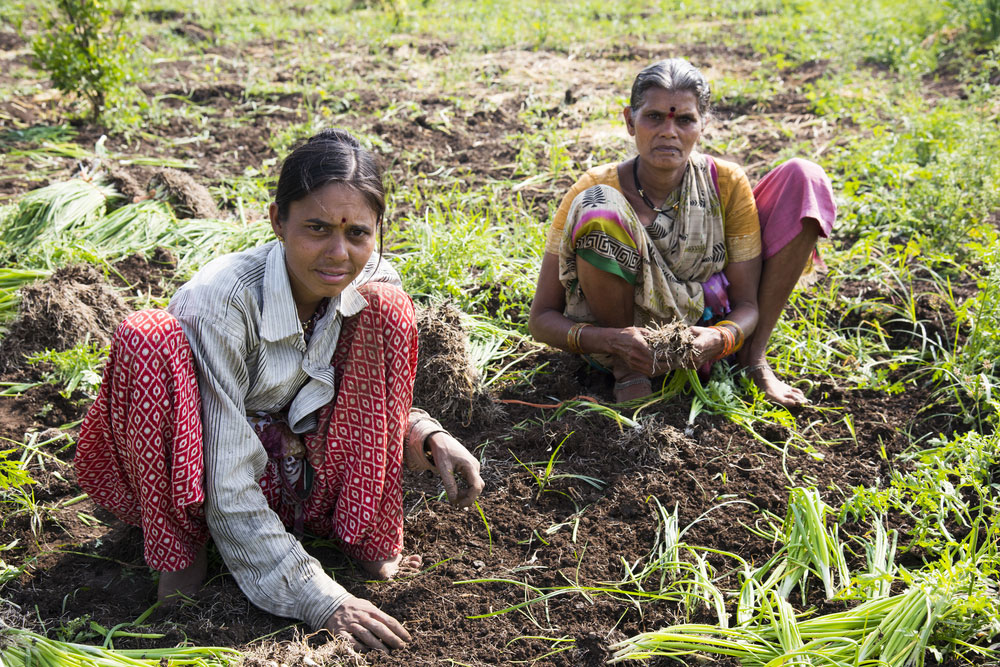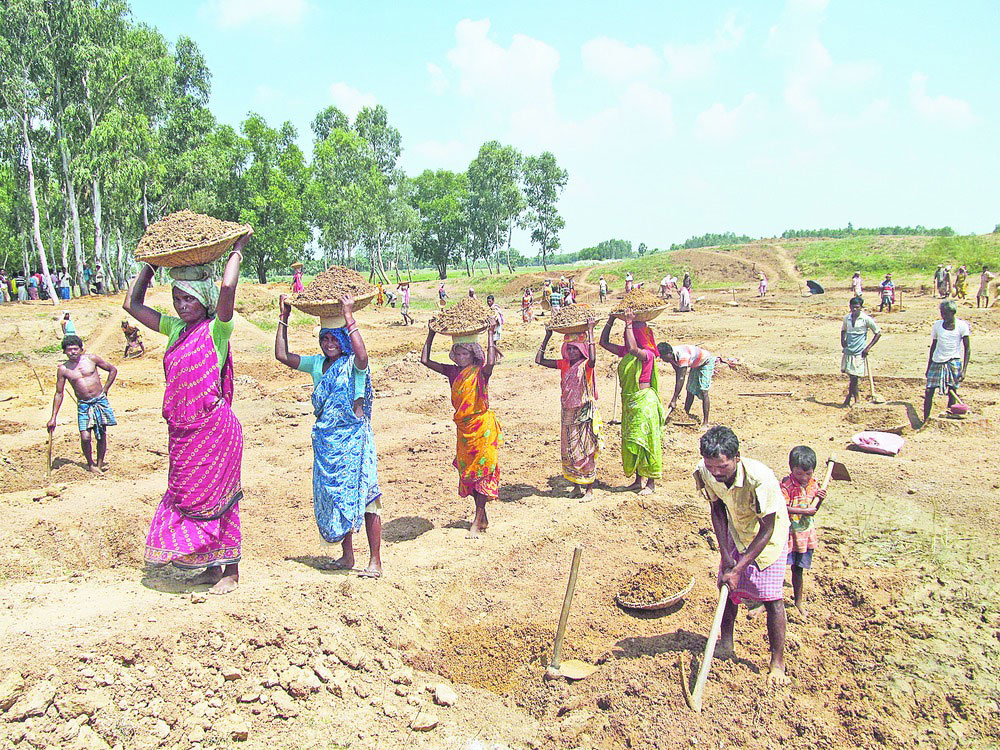The rural job guarantee scheme has run out of funds for this financial year, with activists fearing the implementing agencies will now hesitate to take up new projects, thereby denying paid work to the people.
According to the Mahatma Gandhi National Rural Employment Guarantee Act website, the net balance is now Rs 1,719 crore in deficit. This means the rural development ministry has exhausted the entire funds of Rs 59,567 crore released towards the programme for the 2018-19 financial year.
The scheme guarantees paid, unskilled work for up to 100 days a year to every rural household.
Social activist Nikhil Dey said the scheme would be crippled for the two-and-a-half months left in this financial year, adding to the rural distress, unless more funds are released.
As a demand-driven programme, the scheme allows people to register a demand for work with their respective panchayat offices, which have to start a project to provide the work within 15 days or pay compensation to the would-be worker.
Currently, the scheme has “a negative balance”, Dey said.
“The implementing officers will not take up new projects, fearing payment problems. They will not register people’s demand for work. The rural distress will be aggravated,” he added.
Farmers have held rallies in Delhi complaining about low prices and demanding loan waivers, higher support prices and a better mechanism for government procurement of crops.
Amid the distress, the rural job scheme has been a beacon of hope, a source of income for rural households that has helped check migration of labour and even improve farm production through irrigation and water-harvesting projects.
Officials said the rural development ministry had estimated that the scheme would require an additional Rs 21,000 crore till the end of March over and above the budget grant.
They said the ministry had written to the finance ministry in November to release an additional Rs 10,000 crore without delay as an initial, additional grant. Last week, they said, the finance ministry released Rs 6,000 crore, which has already been used up.
“There’s no sign of money being released in the next one month,” Dey said. “If you wait for the release of rural funds for financial year 2019-20, that money may come in April. I hope the government releases more funds now.”
Natural calamities have worsened the situation. Floods ravaged Kerala late last summer while Cyclone Gaja hit Tamil Nadu in November. Gujarat, Karnataka and Andhra Pradesh declared some of their districts as drought-hit.
People in the calamity-hit regions were entitled to up to 150 days’ work this financial year, which would have increased the scheme expenditure.











